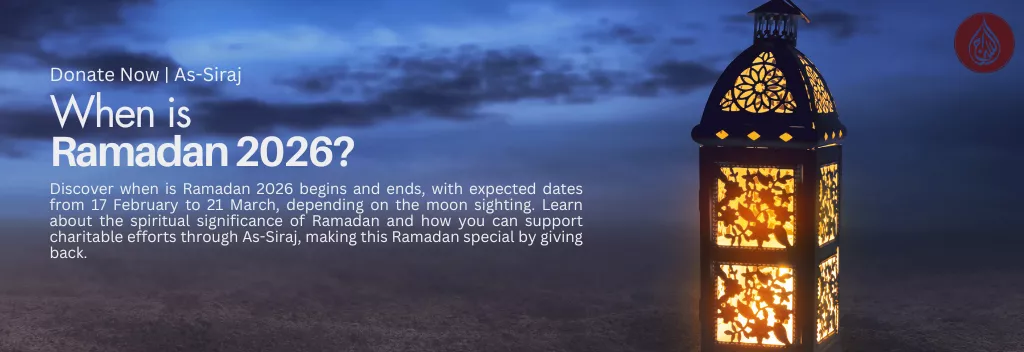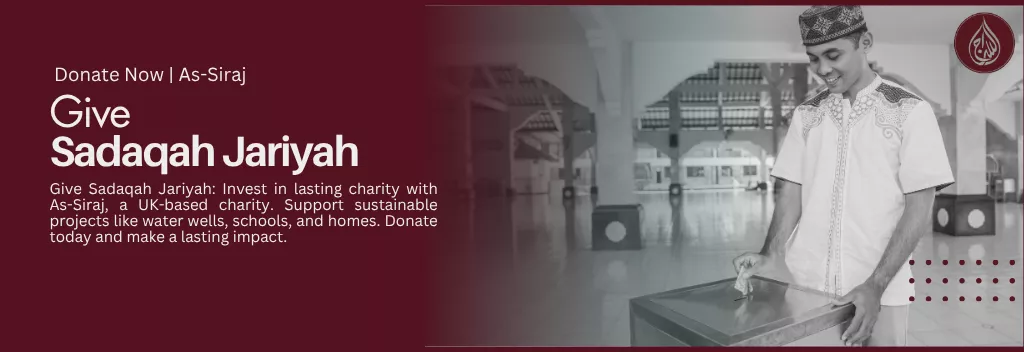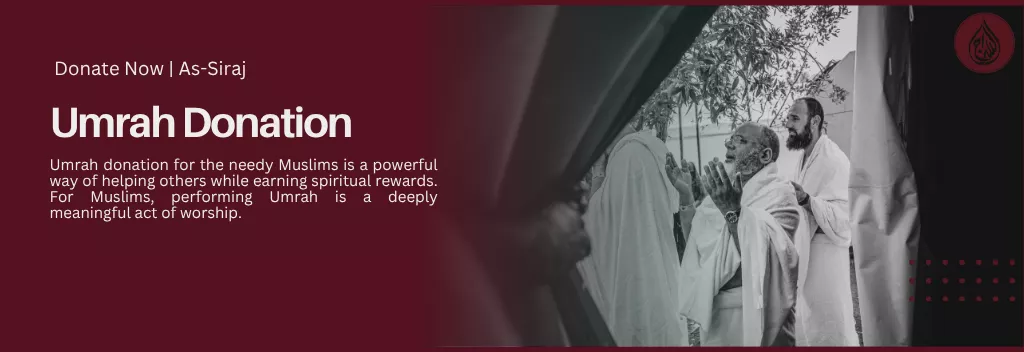Istighfar is the act of seeking forgiveness from Allah, who is adorned with the most beautiful names, including Al-Ghaffar (The Most Forgiving). Forgiveness involves extending mercy to those who have committed wrongdoings. These wrongdoings can either concern the Creator and the divine ordinances He has prescribed, known as huquq al-ilah (the rights of the Lord), or they can concern fellow human beings, known as huquq al-ibad (the rights of creation).
Explore the powerful concept of “The King of Istighfar,” a key form of seeking forgiveness in Islam. Learn its significance, benefits, and how it leads to Allah’s mercy and Paradise.
It is in the nature of mankind to sin and make mistakes. This was even known by the creation before us when the angels said to Allah:
وَإِذْ قَالَ رَبُّكَ لِلْمَلَـٰٓئِكَةِ إِنِّى جَاعِلٌۭ فِى ٱلْأَرْضِ خَلِيفَةًۭ ۖ قَالُوٓا۟ أَتَجْعَلُ فِيهَا مَن يُفْسِدُ فِيهَا وَيَسْفِكُ ٱلدِّمَآءَ وَنَحْنُ نُسَبِّحُ بِحَمْدِكَ وَنُقَدِّسُ لَكَ ۖ قَالَ إِنِّىٓ أَعْلَمُ مَا لَا تَعْلَمُونَ
And (remember) when your Lord said to the angels, “I am about to place My Caliph on the earth”; they said, “Will You place (as a caliph) one who will spread turmoil in it and shed blood? Whereas we glorify You with praise and proclaim Your Sanctity”; He said, “I know what you do not.” (Baqarah 2:30)
This verse shows that the nature of humanity, including our tendency to make mistakes, was known even before we were created. Allah willed our existence knowing, through His pre-eternal knowledge, that humans would sin.
Allah’s forgiveness is vast, like an ocean without a shore. His mercy cannot be limited by anything. This beauty is reflected in the basmalah, where before every good action, we invoke two names of Allah that are rooted in mercy.
Encouragement in Seeking Forgiveness from Allah
وَٱلَّذِينَ إِذَا فَعَلُوا۟ فَـٰحِشَةً أَوْ ظَلَمُوٓا۟ أَنفُسَهُمْ ذَكَرُوا۟ ٱللَّهَ فَٱسْتَغْفَرُوا۟ لِذُنُوبِهِمْ وَمَن يَغْفِرُ ٱلذُّنُوبَ إِلَّا ٱللَّهُ وَلَمْ يُصِرُّوا۟ عَلَىٰ مَا فَعَلُوا۟ وَهُمْ يَعْلَمُونَ
And those who, when they commit an immoral act or wrong themselves, remember Allah and seek forgiveness of their sins – and who forgives sins except Allah? And those who do not purposely persist in what they did while they know. (Aal Imran 3:135)
This verse beautifully encourages us to turn back to Allah, as He is the only one who can forgive our wrongdoings. We are also instructed not to be among those who persist in sin and lose hope in Allah’s mercy, as this is one of the major sins.
The ability to repent is a sign of Allah’s willingness to forgive. After all, He wouldn’t have granted us this opportunity if He didn’t want to envelop us in His mercy.
Sayyiduna Salman al-Farsi reported: The Prophet ﷺ said, “Verily, Allah is conscientious and generous. He would be shy, when a man raises his hands to Him, to turn them away empty and disappointed.” (Tirmidhi, 3556)
Even though the Messenger of Allah ﷺ was free from sin, he ﷺ would seek forgiveness from Allah to set an example for us:
Sayyiduna Abu Hurairah reported: I heard Allah’s Messenger (ﷺ) say: “By Allah! I ask for forgiveness from Allah and turn to Him in repentance more than seventy times a day.” (Bukhari, 6307)
Repentance to Allah not only helps us attain His forgiveness and mercy but also shields us from poverty and serves as an intermediary for having our prayers accepted. Imam Badr ad-Din al-Ayni narrates a famous incident of Imam al-Hasan al-Basri, a student of the companions, regarding the virtue of istighfar:
A man came to al-Hasan al-Basri and complained about a drought. Al-Hasan advised him to “Seek forgiveness from Allah.” Another man complained about poverty, and al-Hasan again said, “Seek forgiveness from Allah.” A third man came, asking for a child, and al-Hasan responded, “Seek forgiveness from Allah.” A fourth person complained about barren land, and once again, al-Hasan told him to “Seek forgiveness from Allah.”
Someone present remarked, “Different people came with different complaints, and you advised them all to seek forgiveness from Allah!” Al-Hasan replied, “I did not say this on my own; it is based on the words of Allah in the story of Prophet Nuh: ‘Seek forgiveness from your Lord. Verily, He is Oft-Forgiving. He will send rain to you in abundance, and He will provide you with wealth and children, and He will give you gardens and rivers.’” (Nuh 71:10-12)
The King of Istighfar
There are various ways of performing istighfar, each with its own virtues and methods of recitation. Some spiritual paths recommend a specific amount of istighfar for their practitioners daily. The most authentic and widespread form of istighfar is known as ‘sayyid al-istighfar’ – the king of istighfar.
Sayyiduna Shaddad b. Aus narrated that the Prophet ﷺ said, the king of istighfar is to say:
After teaching this wording, the Messenger of Allah ﷺ explained its virtue, saying:
“If somebody recites it during the day with firm faith in it, and dies on the same day before the evening, he will be from the people of Paradise; and if somebody recites it at night with firm faith in it, and dies before the morning, he will be from the people of Paradise.” (Bukhari, 6306)
This form of seeking forgiveness embodies eloquence and reflects the deep humility of a servant seeking from his Master.
Conditions for an Accepted Repentance
Imam an-Nawawi outlines the following preconditions for a valid repentance. Three of these conditions concern huquq al-ilah, and an additional condition is added for huquq al-ibad:
“Scholars say that it is a duty to repent for every wrong action. If disobedience occurs between a person and Allah and does not involve the rights of another human being, repentance has three preconditions:
- One must divest oneself of the disobedience.
- One must regret performing it.
- One must promise never to return to it.
If any of these conditions are lacking, the repentance is not valid. If the sin involves another human being, repentance has four preconditions: these three and the need to discharge the rights owed to the other person. If it is money or something similar, it must be returned to the person. If it is a hadd-punishment due to slander or similar, the wronged person must be given power over the perpetrator or they must seek forgiveness. If the sin is slander, it must be undone.”
As-Siraj: A Beacon of Hope
As-Siraj is a UK-based charity organization dedicated to supporting communities and individuals in need, both locally and globally. The organization focuses on providing aid to the most vulnerable, offering essential services such as food distribution, educational support, and welfare assistance. Through its various initiatives, As-Siraj strives to embody the spirit of compassion and generosity that Islam encourages. Just as seeking forgiveness from Allah is an act of mercy, As-Siraj channels that mercy into tangible actions, working to uplift those facing hardship and promote positive change. By supporting the charity’s work, we not only contribute to alleviating the suffering of others but also earn the immense reward of helping those in need, in line with the teachings of Islam.
May Allah allow us to constantly seek His forgiveness and make us from those who earn His pleasure in all stages of our lives. Ameen.
References
- Umdat al-Qari
- Riyadh as-Salihin
Through our collaboration with The House of Wisdom, we aim to inspire thoughtful discourse and promote access to quality knowledge.







